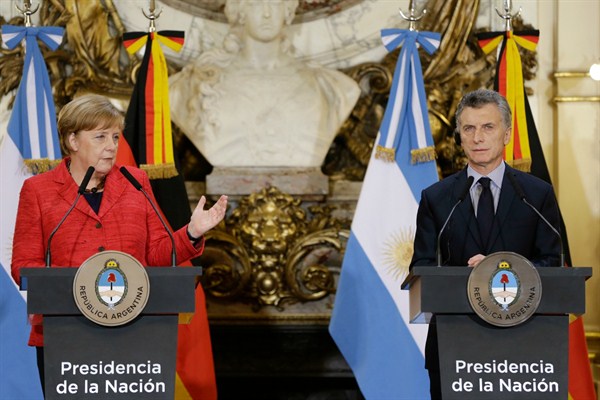German Chancellor Angela Merkel visited Argentina and Mexico earlier this month in advance of the G-20 summit meeting scheduled to take place in Hamburg in July. While discussing trade and investment between Latin America and Europe, she also offered a subtle rebuke of U.S. President Donald Trump, extolling the virtues of the Paris climate agreement and cooperation in an “interconnected world.” In an email interview, Dr. Claudia Zilla, head of research for the Americas at the German Institute for International and Security Affairs in Berlin, discusses Germany’s current engagement with Latin America and the areas in which it could deepen.
WPR: What have been the traditional areas of cooperation and engagement between Germany and Latin America, and how have trade and political relations evolved in recent years?
Claudia Zilla: Germany and Latin American countries have framed their relations in the general terms of cultural affinity, meaning common values and interests. In the past decade, Germany has stressed its aim of expanding economic ties and promoting investment and trade in both directions, fostering scientific and technological exchanges, and promoting cooperation on global challenges in the areas of the environment, security and finance.

